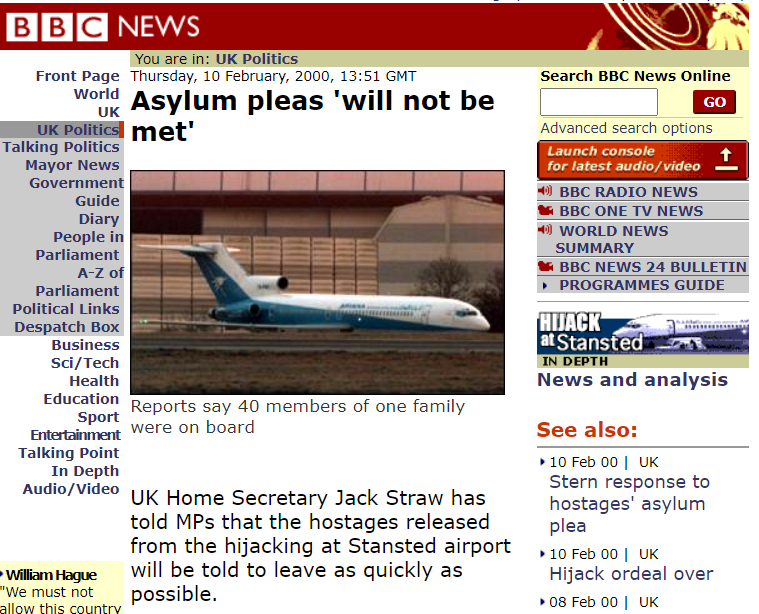
Despite promising not to trash the last four years, Starmer declared in his #Lab21 speech that Labour would “never again go into an election with a manifesto that is not a serious plan for government”
But was it not credible? 🤷♂️🧵
Me for @ipaperviews
inews.co.uk/opinion/keir-s…
But was it not credible? 🤷♂️🧵
Me for @ipaperviews
inews.co.uk/opinion/keir-s…
One key pledge in 2019 was universal free broadband. The pandemic proved how necessary that was with children home-schooled and many working from home.
Now the DWP has partnered with TalkTalk to offer jobseekers six months free broadband
So universal free full-fibre broadband?
Now the DWP has partnered with TalkTalk to offer jobseekers six months free broadband
So universal free full-fibre broadband?
Labour also promised a ‘Warm Homes for All’ policy – which Starmer re-announced it in his #Lab21 speech.
mirror.co.uk/news/politics/…
The retrofitting scheme would create jobs, reduce bills, reduce emissions, so ..?
mirror.co.uk/news/politics/…
The retrofitting scheme would create jobs, reduce bills, reduce emissions, so ..?
That Warm Homes for All policy was part of a huge £250 billion Green Transformation Fund - £25bn a year of green investment over 10 years.
On Monday Rachel Reeves announced a Green Capital Investment scheme of £28bn a year til 2030.
independent.co.uk/tv/climate/rac…
So is that ..?
On Monday Rachel Reeves announced a Green Capital Investment scheme of £28bn a year til 2030.
independent.co.uk/tv/climate/rac…
So is that ..?
The 2019 manifesto pledged to raise corporation tax to 26%.
Rishi Sunak's last Budget pledged to raise corporation tax to 25% in 2023. At the time Keir Starmer opposed saying "now is not the time for tax rises"
cityam.com/keir-starmer-p…
So what do you back?
Rishi Sunak's last Budget pledged to raise corporation tax to 25% in 2023. At the time Keir Starmer opposed saying "now is not the time for tax rises"
cityam.com/keir-starmer-p…
So what do you back?
We pledged £bns to compensate @WASPI_Campaign women, whose pension age was raised without fair warning
Since then, the Parliamentary Ombudsman has found those women were not adequately informed, a ruling that brings compensation closer
bbc.co.uk/news/business-…
So was that pledge?
Since then, the Parliamentary Ombudsman has found those women were not adequately informed, a ruling that brings compensation closer
bbc.co.uk/news/business-…
So was that pledge?
We promised to achieve free personal care (as Labour legislated for in Scotland in 2002), investing an extra £10.8bn as we move towards a free universal National Care Service.
So free personal care and a National Care Service ..?
So free personal care and a National Care Service ..?
We pledged public ownership of the railways.
Just yesterday, Grant Shapps took the Southeastern rail franchise into public ownership. The East Coast mainline franchise has remained in public control since 2018!
mirror.co.uk/news/politics/…
So public ownership of the railways ..?
Just yesterday, Grant Shapps took the Southeastern rail franchise into public ownership. The East Coast mainline franchise has remained in public control since 2018!
mirror.co.uk/news/politics/…
So public ownership of the railways ..?
Keir of course was in the shadow cabinet that signed off the 2019 manifesto.
His area was Brexit🇪🇺🇬🇧. He didn't mention that in his assessment of 2019.
So in hindsight, was Labour's 2019 Brexit policy ..?
His area was Brexit🇪🇺🇬🇧. He didn't mention that in his assessment of 2019.
So in hindsight, was Labour's 2019 Brexit policy ..?
• • •
Missing some Tweet in this thread? You can try to
force a refresh







